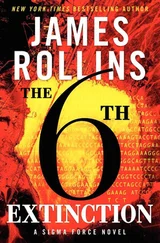At the same time, an army of hackers organized by the Chinese government launched a series of cyberattacks against the American telecommunications grid. Supreme Harmony sensed an enormous surge of data streaming from thousands of computers across China and flowing through the fiber-optic lines under the Pacific Ocean. The attacks focused on the U.S. Defense Department networks that carried command-and-control communications. The data surge clogged the network hubs, disrupting the links between the Pentagon and its overseas forces. Supreme Harmony knew all too well what happened to a network when its communications were disrupted. Without guidance from their headquarters and reconnaissance of their surroundings, the Seventh Fleet’s aircraft-carrier strike force became exquisitely vulnerable.
The next attack came from the coastal province of Zhejiang. One hundred and three mobile rocket launchers had been positioned close to the seashore, each carrying a Dongfeng 21 medium-range ballistic missile. The first barrage of missiles was launched at 4:33 P.M. Supreme Harmony observed their trajectories by accessing the data stream from Yaogan 9, the Chinese radar satellite that was now the only surveillance station over the East China Sea. The satellite also revealed the location of the Seventh Fleet’s strike force, which was six hundred kilometers east of the Zhejiang seacoast. The U.S.S. George Washington , a nuclear-powered Nimitz-class carrier loaded with nearly a hundred Super Hornet fighter-bomber jets, cruised at the center of the flotilla, surrounded by two Ticonderoga-class cruisers and six Arleigh Burke–class destroyers.
Within five minutes, the Dongfeng missiles hurtled above the atmosphere, arcing through space at the highest points of their trajectories. By this time, the Aegis combat systems aboard the American cruisers and destroyers had detected the incoming barrage and launched dozens of SM-3 interceptor rockets designed to smash into the ballistic missiles in midflight. Viewing the radar images from the Yaogan 9 satellite, Supreme Harmony observed the American interceptors home in on the Chinese missiles and obliterate a substantial fraction of them. But more than half of the Dongfengs made it through the Aegis defense shield, and their maneuverable reentry vehicles plunged back into the atmosphere above the carrier strike force. Each reentry vehicle carried a warhead with half a ton of chemical explosives. Guided by the satellite radar data, a dozen warheads punched through the George Washington ’s flight deck and exploded deep inside the aircraft carrier. The other missiles converged on the cruisers and destroyers in the flotilla.
Cheers erupted inside the People’s Liberation Army command center in the Western Hills section of Beijing. Module 73, formerly Minister Deng of the Guoanbu, stood beside the vice president and a dozen PLA generals, who shouted triumphantly as they watched the progress of the battle on their radar screens. The vice president seemed particularly joyful. The portly leader swaggered across the room, shaking hands with every general. When he finally returned to Module 73, Supreme Harmony observed that the man’s body temperature was abnormally elevated. The vice president hadn’t slept in thirty-six hours. His forehead glistened with sweat.
“What a victory!” he yelled. “We’ve sunk the George Washington , the Shiloh, and two of their destroyers! And soon we’ll reload the mobile launchers and throw another round of Dongfengs at them!” He clapped a heavy hand on the Module’s shoulder. “Those arrogant Americans! Can you believe that they’d send their fleet so close to our coastline after what their CIA just did to us?”
The Module nodded. The timing of the fleet’s maneuvers had been quite fortunate. “They never suspected we could hurt them so badly. This will be a harsh lesson for them.”
“And it’s not over yet! As soon as we destroy the rest of their warships, we’ll begin the invasion of Taiwan. Our missiles have already devastated the island’s airfields and naval bases. And the Taiwanese can’t expect any help from the Americans now that we’ve annihilated the Seventh Fleet.” He let go of the Module’s shoulder and pointed at the radar screens. “It’ll take weeks for another American carrier group to get here. By then our ground troops will be in full control of the island.”
Module 73 had to suppress a smile. The vice president was blind to his own arrogance. But this kind of thinking, Supreme Harmony recognized, was simply the logic of war. Every victorious combatant assumed his victories would go on forever. “Thanks to your leadership, something good will come out of this catastrophe. China will finally be reunified.”
“And the Americans will think twice before interfering with our sovereignty again.” The vice president clenched his hands. “From now on, they will fear and respect us!”
The Module nodded again in agreement, but Supreme Harmony knew the American response would be more forceful than the vice president anticipated. The network was already preparing itself by hardening its communications systems and dispersing its Modules across China, moving most of them to bomb shelters and other secure locations. “Yes, you’re right. A new day is dawning.”
The vice president continued exulting for several minutes. Then he let out a tired breath and glanced at his watch. “Ah hell, look at the time. I hate to leave now, but I must go home. I have to catch a few hours of sleep before the next meeting of the Standing Committee.”
Supreme Harmony recognized an opportunity. The network had accessed the Guoanbu files containing biographical information on all the Communist Party leaders. According to one of the classified documents, the vice president had a weakness for baijiu, the traditional Chinese liquor. “Why don’t you let me give you a ride?” the Module said. “I have a bottle of Moutai in my limousine. We can drink a toast to the success of your operation.”
Moutai was one of the most expensive brands of baijiu. The vice president raised an eyebrow. “That’s a very generous offer, Minister Deng. But is there room for my bodyguards in your car? I have three of them today, because of the emergency.”
“You don’t need your bodyguards when you’re with the minister of State Security. As you can imagine, a rather large security detail is at my disposal.” Module 73 turned around and pointed to Modules 16, 17, and 18, who were posing as his bodyguards.
The vice president smiled. He was clearly hoping to be persuaded. “Well, in that case, what are we waiting for?”
There were more soldiers at the border than Kirsten had expected. As she drove through the mountains on the Chinese side of the border, she got stuck behind a convoy of PLA trucks, which rumbled at a glacial pace down the narrow road. When she finally arrived in the late afternoon at the gritty town of Pianma, the main street was so jammed with vehicles and soldiers that she had to get out of her sedan and walk. PLA officers stood in the middle of the road and shouted orders at the infantrymen, who jumped out of their trucks and assembled in long columns. Then they marched by the hundreds toward the Burmese border, which was less than a kilometer beyond the town.
Kirsten tried to blend in with the townspeople. About half were Chinese and half were Lisu, one of the ethnic minority groups living in Yunnan Province. The Lisu women had dark complexions and wore colorful ankle-length skirts. They shook their heads as they watched the military activity, obviously puzzled by the PLA’s sudden deployment at the border. And Kirsten was puzzled, too. It was logical that the army would go on alert after the disaster at the Three Gorges Dam, but why had the soldiers come here ? Although the Burmese border was thick with smugglers and rebellious Kachin militiamen, it seemed odd that the PLA would launch an operation against them now, when it should’ve been preoccupied with the rescue efforts in the Yangtze floodplain. Kirsten suspected that Supreme Harmony had engineered this buildup, but she couldn’t say why.
Читать дальше












